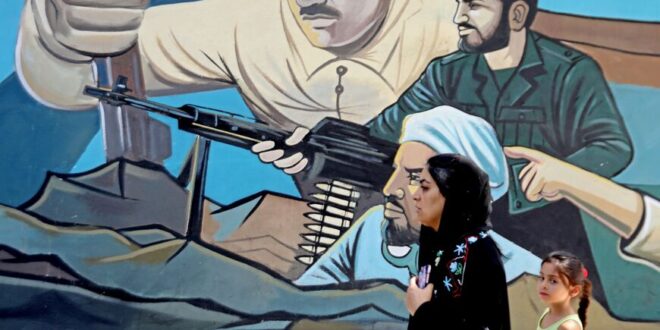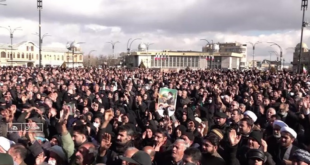Iranian official dismisses talk of a “less for less” deal as “the outcome of some think tank brainstorming.”
The latest signs indicate the 2015 nuclear deal with Iran doesn’t have much of a pulse.
The Biden administration says the Joint Comprehensive Plan of Action (JCPOA) is not on the agenda. However, on Monday a report by Axios revealed that the US has discussed with its European and Israeli partners an interim agreement with Iran that would include some sanctions relief in exchange for Tehran freezing parts of its nuclear program.
A “less for less” deal, which Al-Monitor has previously reported, is based on accounts by several Israeli officials, Western diplomats and US experts. But it’s quite clear that it faces long odds.
If the United States, via the EU, is floating an interim deal, it doesn’t appear Iran is buying. Authorities in Tehran are saying that time is passing, even though the Iranian economy continues to be in free fall and the dollar exchange rate changes on news of the negotiations.
An Iranian official who spoke to Al-Monitor on condition of anonymity said Tehran would not accept any sort of interim deal. He called the proposal “the outcome of some think tank brainstorming, and Iran has been approached via interlocutors with similar initiatives on several occasions.”
A senior Biden administration official, also speaking not for attribution, did not comment directly on the report, yet stressed that Washington “is in constant contact with our allies and partners, including the E3, but we’re not going to detail diplomatic conversations or respond to rumors, many of which are simply false.” The E3 refers to Germany, Britain and France.
The US official, though, expressed great concern over what he described as the expansion of Iran’s nuclear activities, including highly enriched uranium “for which Iran has no credible purpose.”
The official stressed, “The United States is committed to never allowing Iran to acquire a nuclear weapon. We believe diplomacy is the best way to achieve that goal, but President Biden has also been clear that we have not removed any option from the table.”
Al-Monitor was able to confirm from several sources that an interim deal wasn’t discussed at a meeting between the E3 foreign ministries’ political directors with Iranian deputy foreign minister Ali Bagheri Kani in Oslo a few weeks ago.
Conflicting narratives were presented over that meeting. Bagheri Kani confirmed the meeting in a tweet on March 22, stating that discussions covered a range of issues and that he spared “no opportunity to clarify our views and warn against certain miscalculations. We’re determined in advancing our national interests, including through diplomacy.”
The E3 side preferred not to officially comment, but the Saudi daily Asharq Al-Awsat quoted a Western diplomatic source that the meeting was mainly “to urge Iran to clarify the traces of highly-enriched uranium [that were found at several undeclared sites] of up to 83.7%” A level of 90% would allow the production of a nuclear bomb.
Al-Monitor learned from several sources that the leak about the meeting caused dismay on the European side.
The Iranian official who spoke to Al-Monitor said, “If there’s no deal within the coming two to three months, it’s going to be inevitable to negotiate another deal, and that’s not going to be an easy task at all with all the complexities inside and outside.”
Iran’s Foreign Minister, Hossein Amir Abdollahian, told Al-Monitor in a March 27 interview that the room for negotiations would not be open forever. However, the top Iranian diplomat showed readiness to develop cooperation with the International Atomic Energy Agency to make sure his country’s nuclear program isn’t going beyond the red lines.
“Today we are on the track of constructive cooperation between Iran and the IAEA,” he said. “There were some delegations here and we had more positive exchange with the IAEA. At technical level will continue to cooperate with the IAEA,” Abdollahian added.
 Eurasia Press & News
Eurasia Press & News




